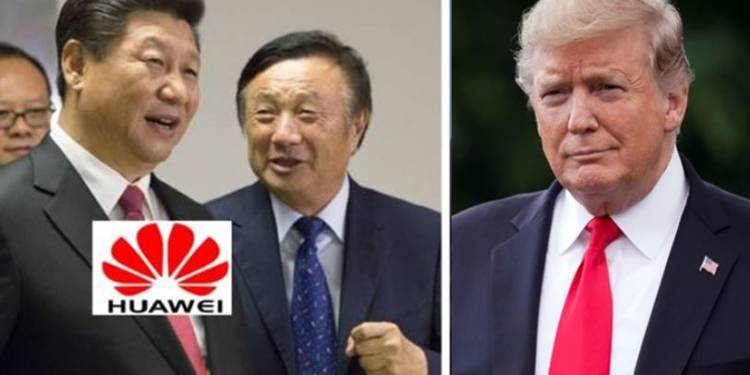Two years ago in August 2018, Huawei became the second-largest smartphone maker in the world overtaking Apple, controlling around 30 per cent market share. The only company that was ahead of the Chinese giant was the South Korean company Samsung. It was the same time when the trade war between China and the United States was picking up with Trump’s rhetoric going high every passing day.
In these two years, the trade war reached a level where Trump banned Huawei from using semiconductors designed based on American secret design which is the dominant model used in the market. And the effect of the semiconductor ban is that, Huawei, which was competing for global domination two years ago, is now considering an exit from the market as per a report by famous analyst Ming-Chi Kuo.
Previously the Chinese technology giant with annual revenue of more than 120 billion dollars has said that its “survival” is at stake after USA’s semiconductor (chip) export restrictions on the company. “We will now work hard to figure out how to survive,” said Guo Ping, rotating chairman, at Huawei’s annual analyst conference. “Survival is the keyword for us now.”
The US released new guidelines regarding the export of semiconductors, the most essential part of any consumer electronics and technology equipment. As per new guidelines, any foreign company which seeks to export semiconductors based on secret American design has to apply for a license to the US Department of Commerce, which the department is most likely to deny.
Moreover, Google banned Huawei and Honor phones were also banned from Google apps and services. So, Huawei phones will neither have efficient American semiconductors nor Google’s apps and services. And, therefore, the phone is of no utility for the consumers if it does not have the most essential apps and efficient functioning.
In May last year, the US banned American technology export to Huawei by its companies, but, on the other hand, many countries in East Asia like Taiwan, Japan, and South Korea manufactured consumer electronics essentials using American technology. Therefore, it was easy for Huawei to game the US export ban and import these products from other East Asian countries, but with new rules in place, even these countries will not be able to supply equipment to the Chinese giant.
Taiwan Semiconductor Manufacturing Company (TSMC), a Taiwanese company that manufactures semiconductors based on secretive American design, announced that the company would not take any new order from Huawei.
Huawei is the second-largest customer- accounting for 14 per cent of total orders- to the Taiwanese company which manufactures semiconductors for all top consumer electronics of the world including Apple. Therefore, the ban is bound to hurt TSMC’s business but they would have to follow American rules, as they use secretive American technology to design chips.
Semiconductor, popularly known as the chip, is very essential in manufacturing any modern electronic equipment ranging from Smartphones to Refrigerators, and with the ban on access to it; Huawei would head nowhere in the global technology race.
Previously Huawei’s rotating chairman Guo Ping said American is doing to protect its technology supremacy and trying to crush the competition because his company is taking the lead in global tech innovation. “Any other country or company with more advanced technologies may put US supremacy at risk,” he said.
Most of the Chinese technology companies are copycats of their American counterparts and theft of American intellectual property. So China has a Baidu search engine modelled after Google, Alibaba modelled after Amazon, Tencent modelled after Facebook so on and so forth. These companies are dependent on American giants in one or the other way for software innovations or hardware equipment, and could not survive for long without the American support.
Therefore, once America pulls out and puts a ban on the use of equipment and services developed by American companies, the Chinese technology industry would collapse like a House of Cards.
A technology war has started between the US and China, as rightly argued by Global Times, the mouthpiece of Chinese Communist Party, but with all consumer electronics and technology giants like Taiwan, South Korea, and Japan on his side, it is not hard to predict who will win in this war.
